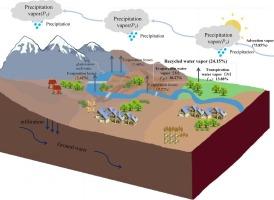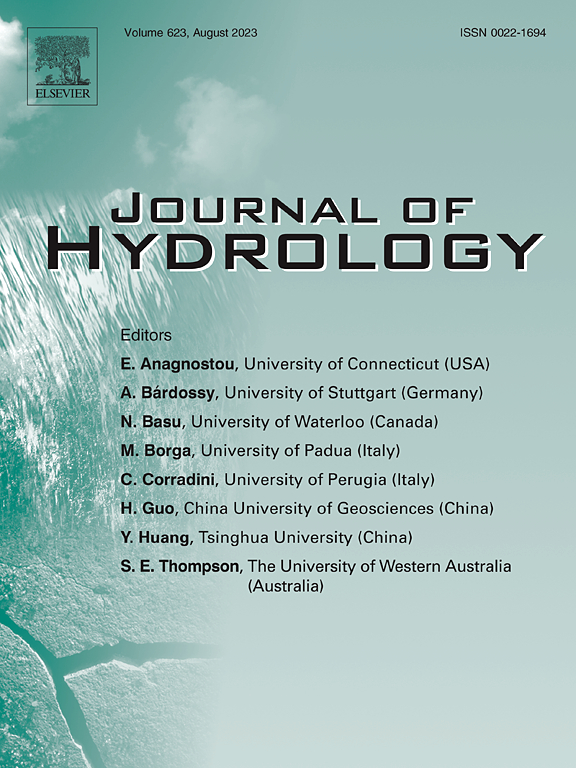梯级水电站对祁连山径流西营河流域水文循环的影响
IF 6.3
1区 地球科学
Q1 ENGINEERING, CIVIL
引用次数: 0
摘要
在水电资源丰富的山区建立梯级水电站是促进社会经济发展的高效方法。然而,由于水资源的人为空间分布,水电站的建设最终会导致特定流域或地区的水文循环发生重大变化。本研究探讨了中国西北部西营河干旱区梯级水电站对水循环的影响。研究结果表明(1) 水电站建成后,河流的蒸发损失超过了天然河流,导致地表水同位素富集。(2) 梯级水电站的蒸发效应增加了降水中再循环水蒸气的比例。(3) 通过梯级水电站增加了地表水和地下水的交换。因此,在干旱地区进行水资源管理时,必须考虑梯级水电站等人工水利工程对当地水文循环的影响。本文章由计算机程序翻译,如有差异,请以英文原文为准。

Effects of cascade hydropower stations on hydrologic cycle in Xiying river basin, a runoff in Qilian mountain
Establishing terraced hydropower stations in mountainous regions with abundant hydropower resources is a highly efficient approach to fostering socio-economic development. Nevertheless, the construction of hydropower stations would eventually cause substantial alterations in the hydrological cycle of a particular basin or region due to the artificial spatial distribution of water resources. This study examines the effects on the water cycle of stepped hydropower stations in the arid zone of Xiying River, in the northwestern of China. The study’s findings indicate that: (1) Hydropower stations rivers exceeded natural rivers in evaporation losses following the construction of these plants, leading to isotope enrichment in surface water. (2) Cascade hydropower station’s evaporative effect increases the proportion of recirculated water vapor within precipitation. (3) Increased surface and groundwater exchange through cascade hydropower stations. Consequently, when managing water resources in arid regions, it is imperative to consider the influence of artificial water conservancy structures, such as graded hydropower stations, on the local hydrologic cycle.
求助全文
通过发布文献求助,成功后即可免费获取论文全文。
去求助
来源期刊

Journal of Hydrology
地学-地球科学综合
CiteScore
11.00
自引率
12.50%
发文量
1309
审稿时长
7.5 months
期刊介绍:
The Journal of Hydrology publishes original research papers and comprehensive reviews in all the subfields of the hydrological sciences including water based management and policy issues that impact on economics and society. These comprise, but are not limited to the physical, chemical, biogeochemical, stochastic and systems aspects of surface and groundwater hydrology, hydrometeorology and hydrogeology. Relevant topics incorporating the insights and methodologies of disciplines such as climatology, water resource systems, hydraulics, agrohydrology, geomorphology, soil science, instrumentation and remote sensing, civil and environmental engineering are included. Social science perspectives on hydrological problems such as resource and ecological economics, environmental sociology, psychology and behavioural science, management and policy analysis are also invited. Multi-and interdisciplinary analyses of hydrological problems are within scope. The science published in the Journal of Hydrology is relevant to catchment scales rather than exclusively to a local scale or site.
 求助内容:
求助内容: 应助结果提醒方式:
应助结果提醒方式:


